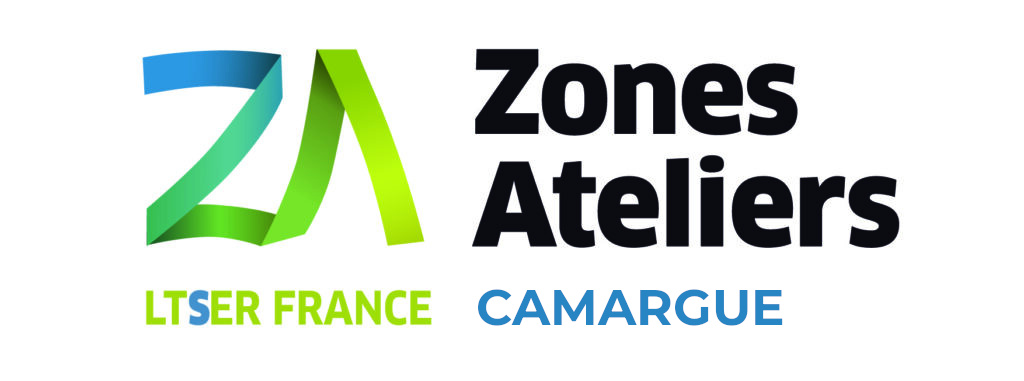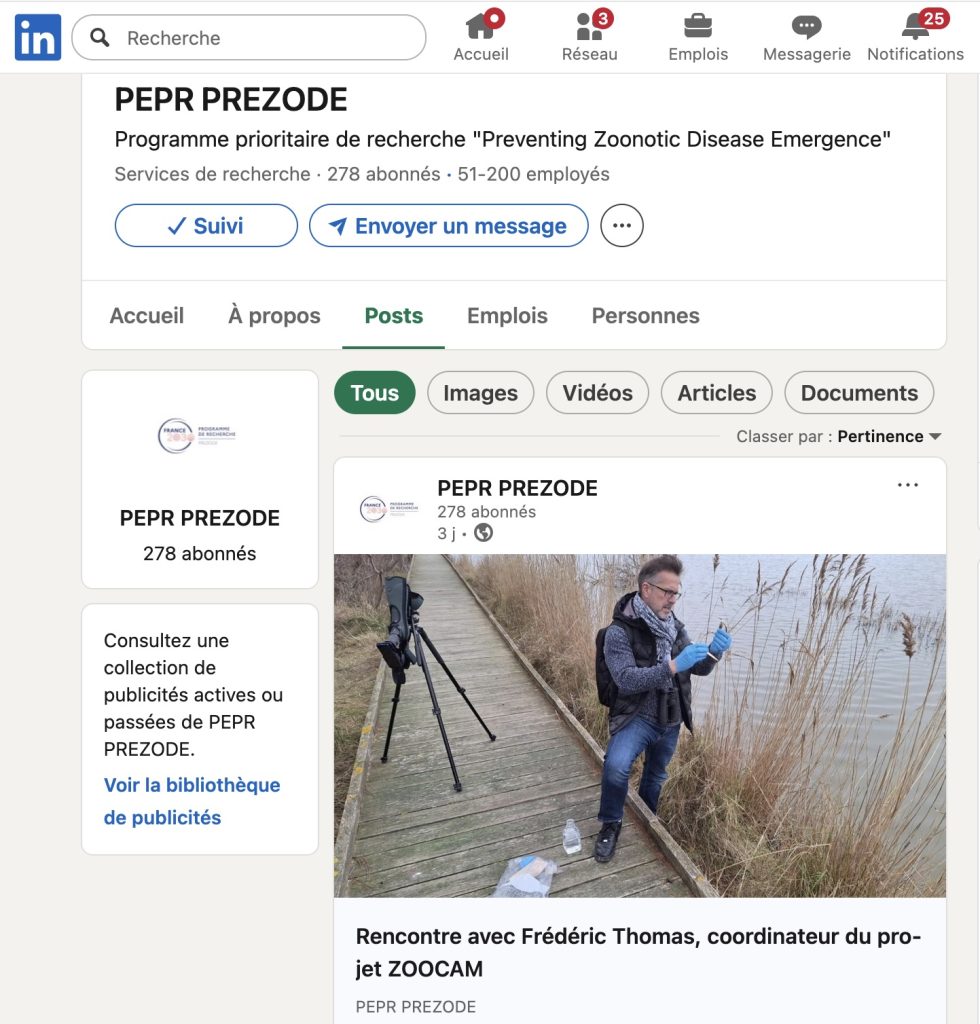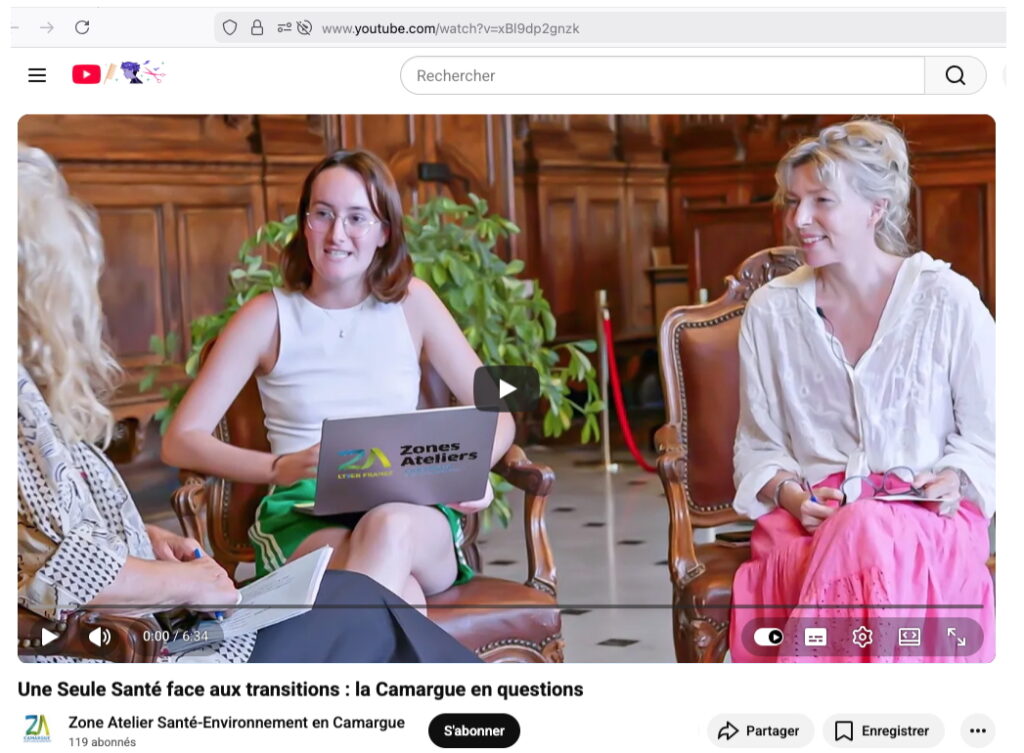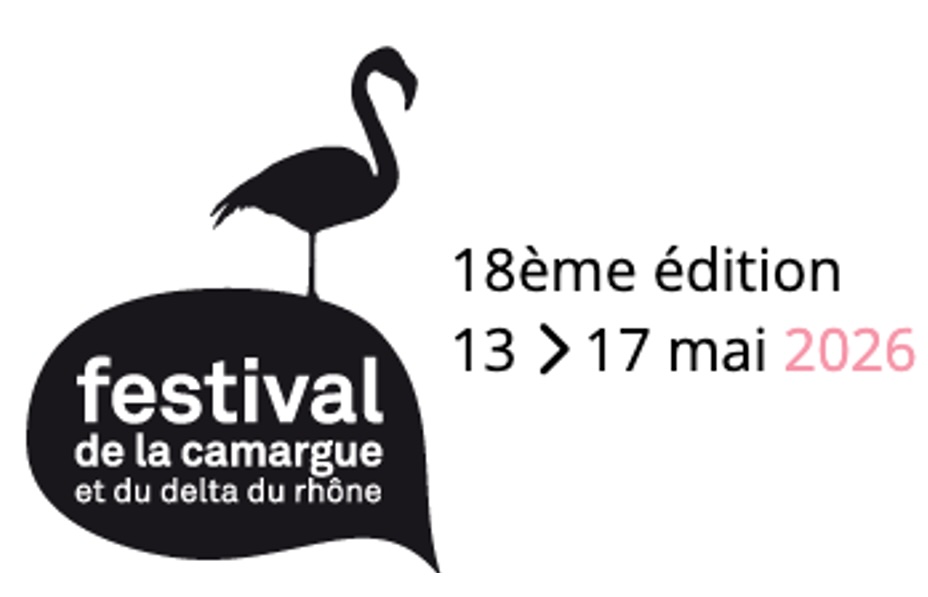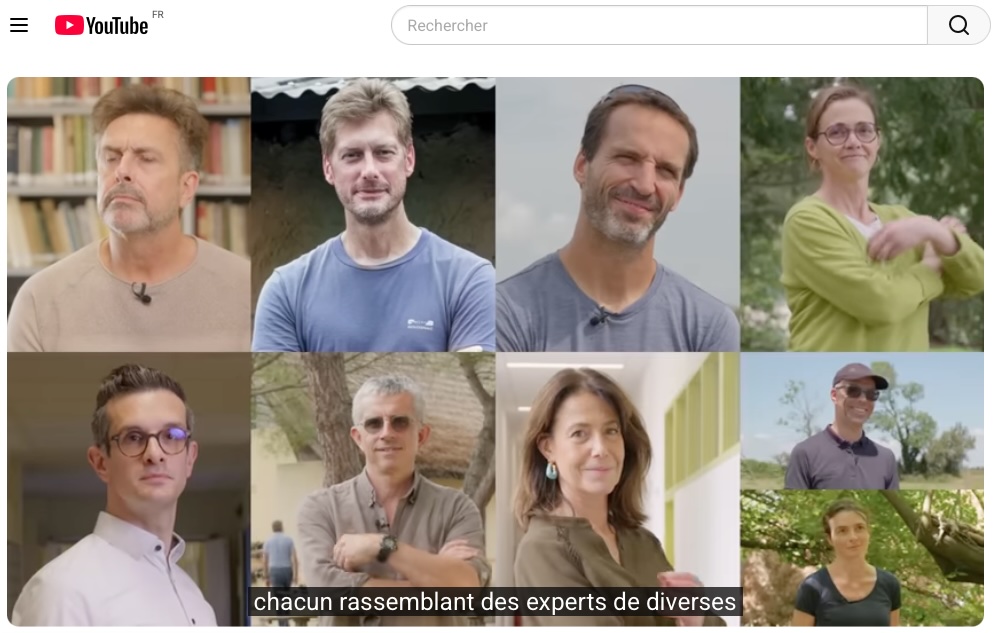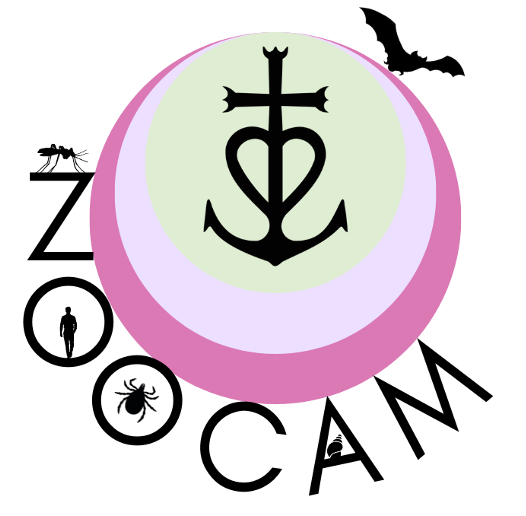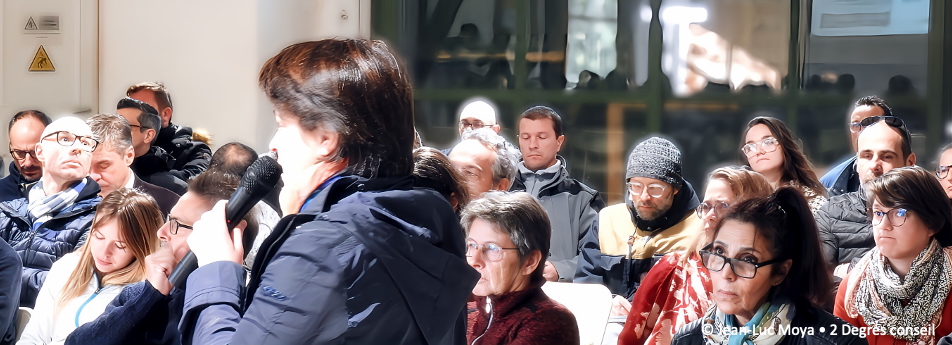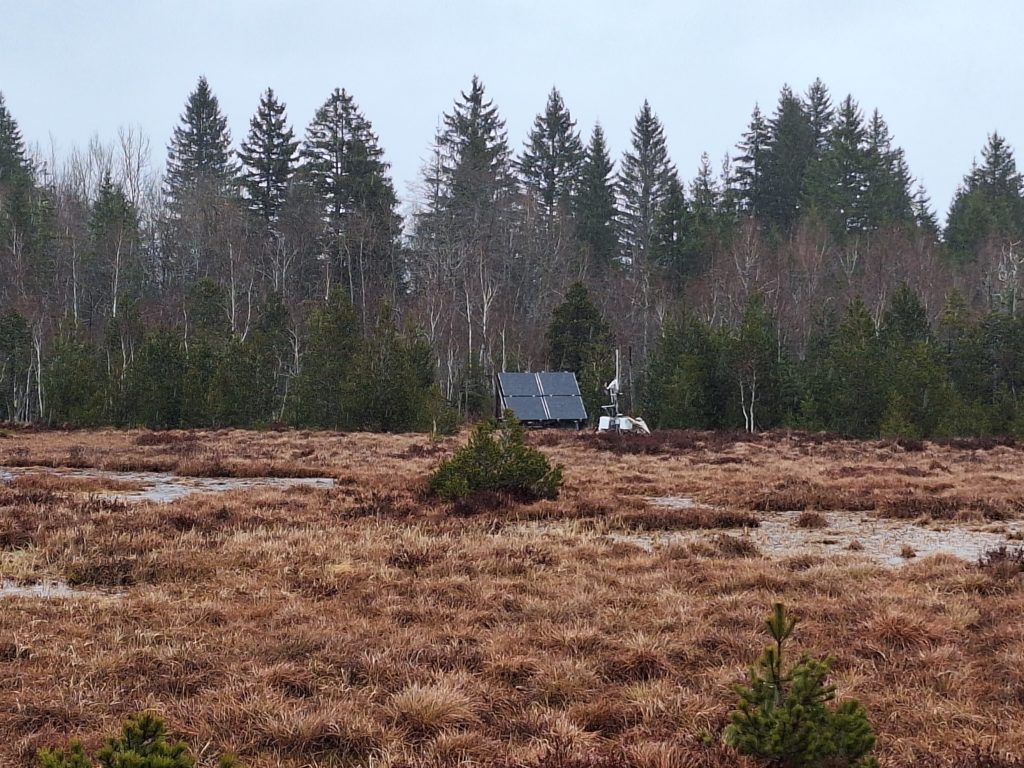Summary The Camargue (Rhône Delta, France) is a temperate ecosystem that is conducive to the emergence and spread of zoonotic diseases. Faced with this challenge, and at a time when the One Health approach has focused mainly on tropical and intertropical regions, a CNRS Health-Environment-Camargue Workshop Zone is being set up. The aim is to bring together health-environment research in the Camargue using an integrative, interdisciplinary approach to provide local players with practical solutions. The ZOOCAM project aims to answer the following questions:
1) What are the dynamics of circulating/emerging zoonotic agents in the Camargue?
2) What human and environmental factors influence the spread of zoonotic agents?
3) Can current and emerging zoonotic risks be modelled/predicted?
4) How is the risk perceived by local stakeholders?
ZOOCAM se structure en plusieurs « Work Packages » (WP) dédiés à des aspects spécifiques de la recherche
- Le WP1, mené par Fred Thomas et Pierre Becquart (MIVEGEC), se concentre sur l’étude des virus de mammifères en Camargue, notamment ceux présents chez les chauves-souris, et sur l’établissement d’une cartographie génomique de ces virus. L’objectif est de comprendre quels virus pourraient potentiellement se transmettre à l’homme et de suivre leur évolution dans le temps. Les recherches incluent également un élargissement à d’autres mammifères locaux, comme les ragondins ou les fouines, afin de mieux appréhender les vecteurs zoonotiques dans la région.
- Le WP2ZOOCAM, directed by Olivier Rey (IHPE), is looking at trematodes, parasites present in aquatic environments that have major health consequences for humans and domestic animals. Although little is known about these parasites, the research carried out as part of ZOOCAM aims to better anticipate trematode-related diseases in a context of environmental change, particularly as a result of increasing anthropisation and the use of pesticides in the Camargue rice fields.
- Le WP3 mené par Karen McCoy (MIVEGEC) explore les liens entre la pollution par les microplastiques et la capacité vectorielle de certains organismes, comme les moustiques, les tiques et les mollusques d’eau douce, sur le littoral méditerranéen. L’objectif est d’analyser comment ces polluants peuvent influencer la propagation des maladies à travers ces vecteurs biologiques, une approche innovante qui pourrait ouvrir de nouvelles perspectives en matière de gestion environnementale et sanitaire.
- Le WP4 The ZOOCAM project, led by Emanuel Fronhofer (ISEM), focuses on modelling the risks associated with zoonoses. The main objective is to predict the evolution of zoonotic diseases as a function of ecological dynamics and interactions between animal species and their environment. WP4 also aims to integrate these results into a health management perspective, by providing tools and recommendations to local stakeholders to anticipate and prevent the risks associated with zoonoses, while promoting a sustainable approach to biodiversity.
- The project's ambitions do not stop at fundamental research. ZOOCAM also aims to integrate its results into concrete actions in favour of territorial management and public health. The issue of co-constructing knowledge with local players is a key pillar of the project, implemented at the level of the WP5 directed by Raphaël Mathevet (CEFE). The management of zoonoses cannot be limited to a scientific approach; it requires the involvement of local users, be they farmers, managers of natural areas or local populations. The complexity of the interactions between biodiversity, health and society calls for concerted responses, in which participatory science plays a crucial role. A special effort is being made to raise awareness of zoonotic risks among local stakeholders, while stressing the importance of preserving biodiversity and benefiting from the ecosystem services it provides.
- Finally, the ZOOCAM project stands out for its interdisciplinary and collaborative dimension, which is addressed in the WP6 led by Aurélie Binot (MSH Sud). Although the different work packages have been built relatively independently, there is a strong desire to break down barriers, with an effort to build a common epistemological framework between researchers from a variety of disciplines, such as biology, ecology and human and social sciences (SHS). The links between the work packages will gradually be strengthened, particularly in terms of sampling strategies, and also through the interactions between the vector models studied in work package 3 and the health risk analyses in work package 4.
- A key aspect of ZOOCAM is its regional focus. The Camargue, with its biodiversity and wetlands, is a particularly suitable area for studying health/environment interactions, with a health ecology observatory and the Tour du Valat (TdV), a pioneering wetland conservation research centre that plays a central role in coordinating field research. In the project, this WP transverse is led by Marion Vittecoq (TdV). Thanks to this local dynamic, ZOOCAM benefits from in-depth local knowledge and solid partnerships with regional players.
ZOOCAM seeks to avoid a simplistic view of nature as a source of health hazards. On the contrary, the project aims to show that biodiversity, if properly managed, can be an asset for public health. This approach requires constant dialogue between scientists and local stakeholders, in particular to find sustainable solutions that reduce health risks while preserving ecosystems. For example, the involvement of WP5 and WP6 in the communication and coordination of scientific results with the social dynamics on the ground is a key dimension of this process.
In conclusion, ZOOCAM has established itself as a major research project on zoonoses and environmental health in the Camargue. Its strength lies in its interdisciplinary approach, its strong local roots and its desire to co-construct solutions with local stakeholders, strengthening the links between science, society and the sustainable management of biodiversity.
A major challenge lies in the ability of those involved in the project to decompartmentalise their approaches between WP and to integrate the heterogeneous knowledge that will be produced.
Authors: Frédéric Thomas (Project extracts), Aurélie Binot (Story draft extracts).
